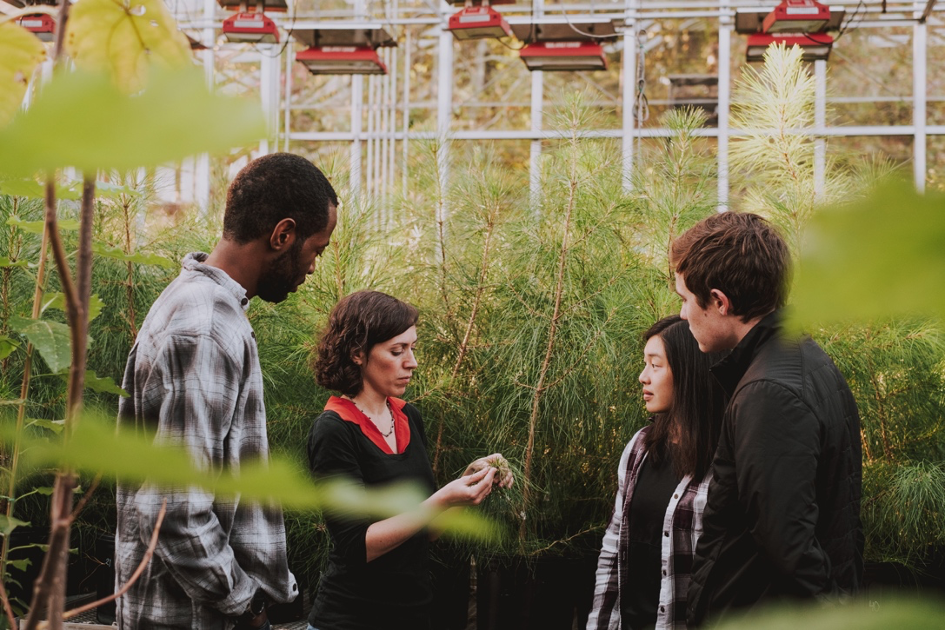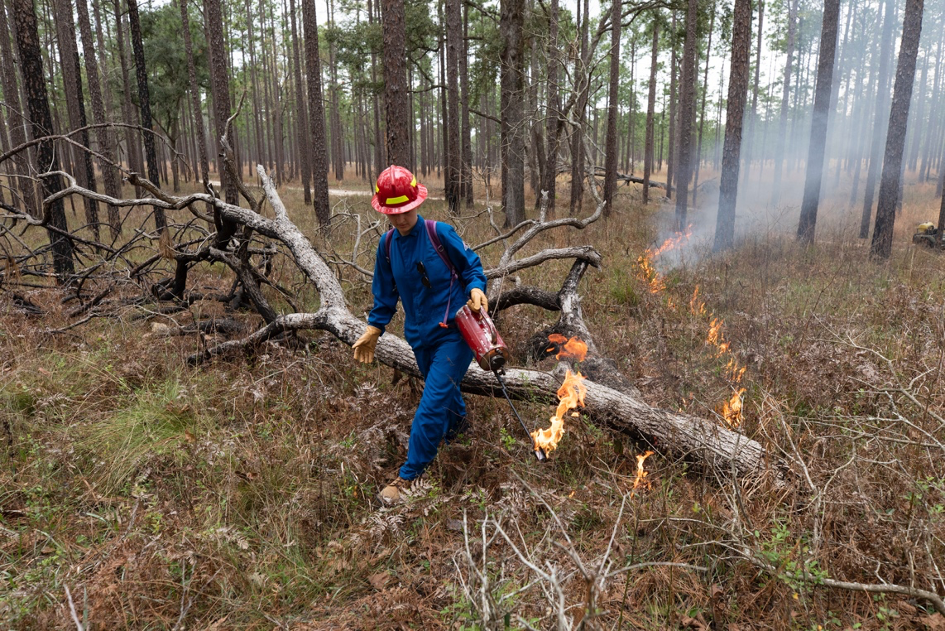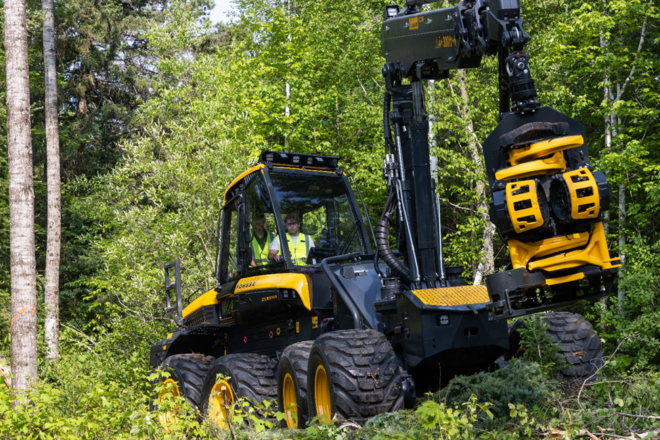Learning From the Country’s Top Timber Producer: The University of Georgia Warnell School of Forestry and Natural Resources
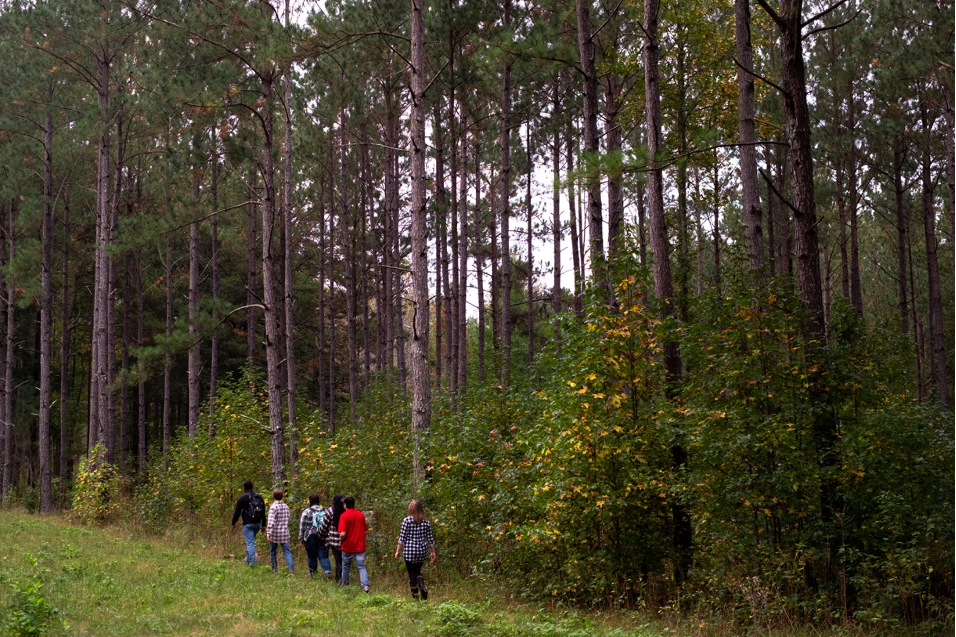
One of the oldest forestry schools in the country, the University of Georgia Warnell School of Forestry and Natural Resources, is well-placed, both in location and programs, to train the next generation of industry leaders.
Located in the heart of the Southeast, Georgia is the top forestry state in the country, with more than 26 million acres of commercial forestland. The forest industry contributes more than $39 billion to the state’s economy. With this as a backdrop, our students learn through hands-on classes and labs that take place in working forests, including the school’s own 840-acre Whitehall Forest with pine and hardwood stands, ponds, rivers, and soil sampling sites. Another 19,000 acres across the state offer additional research, teaching, outreach, and income opportunities.

Undergraduates earn a Bachelor of Science in Forest Resources. While graduate students can pursue research through Master of Science and Doctor of Philosophy degrees, gain specialized expertise with a Master of Natural Resources, or take a business-focused approach through the Master of Forest Resources program. About 300 undergraduate students and 250 graduate students are enrolled in the school.
Getting out and learning from Georgia’s forests is a key component of the Warnell experience. Our summer Forestry Field Camp kicks this off for most undergraduate students, taking them to nurseries, diverse forest types, logging operations, and a variety of mills across Georgia. From here, coursework delves into forest ecosystems, management tools, spatial analysis, silviculture, and harvesting. Classes also emphasize teamwork and critical thinking.
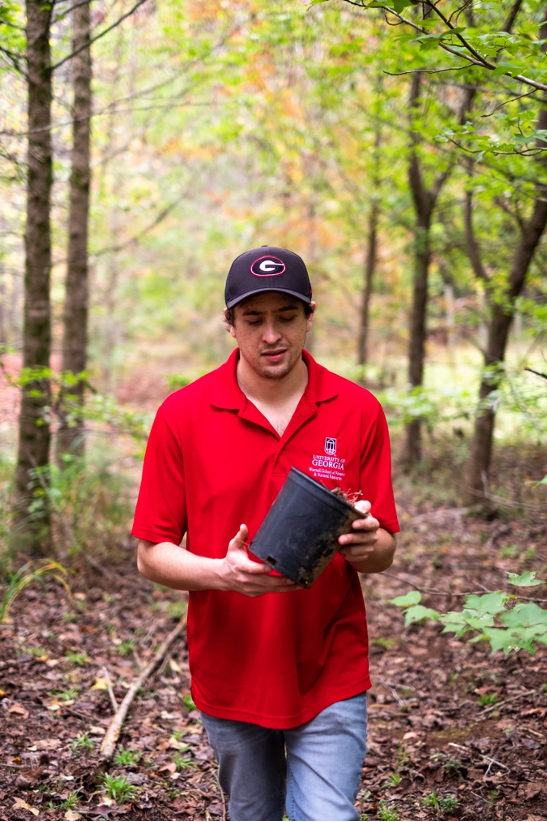
In-house Expertise
Warnell’s 29 forestry faculty members represent a range of expertise across all segments of the forest industry. Our students learn directly from scholars developing new growth and yield models or best practices in harvesting and logistics. Our faculty are developing new ways for logging companies to run more efficiently, to improve the safety and training for log trucks and drivers, and methods to discern wood strength and tree growth. Students benefit from emerging precision forestry technology like drones and artificial intelligence (AI). A growing area of Warnell’s research involves aerial mapping and data collection, as well as incorporating AI to identify pests, measure wood production, or even virtually bring people into the forest.
Students also benefit from the expertise found at Warnell’s research centers and cooperatives. The faculty who lead these programs incorporate the latest research and technology into their coursework. These specialized centers at Warnell include:
- The Harley Langdale Jr. Center for Forest Business: By incorporating classes from UGA’s Terry College of Business, this center was the first program in the country dedicated to training graduate students in the business of forestry beginning in the early 1980s.
- Plantation Management Research Cooperative: A wealth of longitudinal data related to pine plantations, faculty work with a dedicated research team to survey and analyze growth models and other management tools at pine plantations across the South. Many growth and yield models used today were developed through this cooperative.
- Wood Quality Consortium: This is a partnership between UGA, the forest industry, and USDA Forest Service to improve wood and fiber quality.
- Southern Pine Health Research Cooperative: Led by Warnell faculty, this cooperative works with the forest industry to manage pests and pathogens affecting forests.
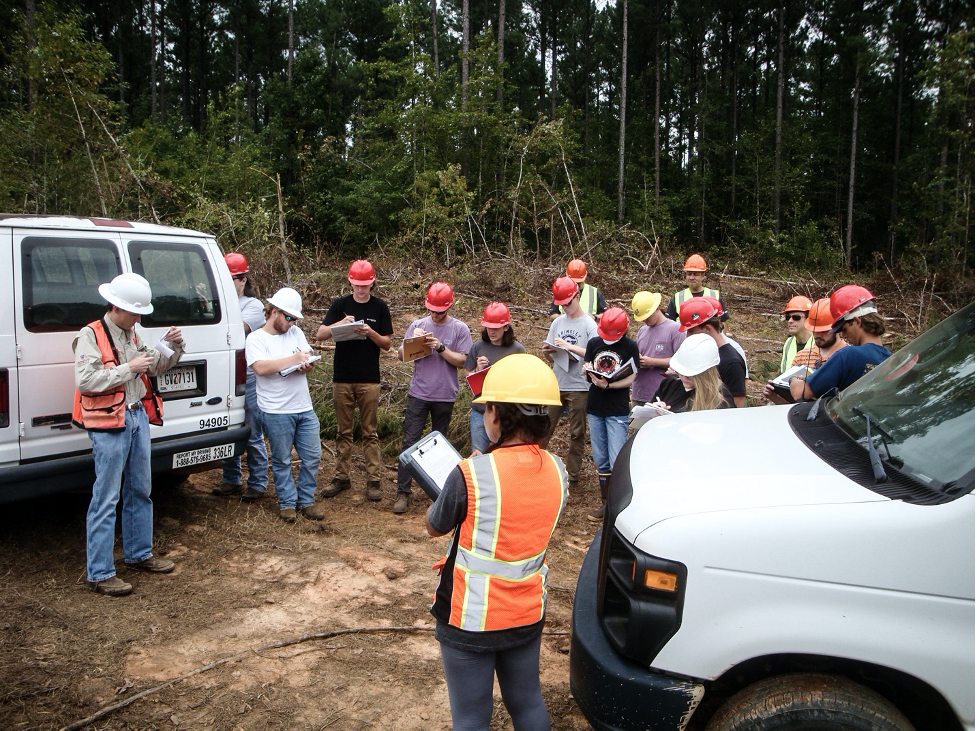
Making Connections
Hands-on learning is woven throughout the curriculum, starting with the required Forestry Field Camp during each student’s first spring semester and continuing through special courses that incorporate field trips and visits to sites across Georgia and the Southeast. For example, students can earn a red card during a spring wildland fire course. Other classes teach about prescribed burning in the longleaf pine ecosystem or soils and their influence on pine growth. Warnell students typically spend summers completing a paid internship, where the school’s deep connections with a range of employers work to create new opportunities to learn. Before graduating, all students complete a signature capstone class, Senior Project, in which they tackle a real-world management issue as part of a group (another option, Senior Thesis, leads students through an independent research project in preparation for a graduate program).
Warnell faculty also offer their expertise to landowners and the forest industry through various outreach programs and continuing education classes. These include required training for forestry professionals using the latest data and best practices, as well as new programs for small landowners or under-represented groups. For example, a continuing series developed for women landowners draws experts from around the Southeast to help this growing segment of landowners navigate land management decisions. Another series, designed for family landowners, helps connect them with resources related to emerging carbon markets. Forest operations faculty teach short courses in logging cost analysis and timber transportation that help logging business owners and foresters better understand the financial aspects of their businesses.
By connecting students with real-world experiences from the program’s start and continuing to connect research to the forest industry, Warnell’s program is developing the next generation of forestry professionals who understand the value of innovation. Warnell’s faculty are pushing boundaries with technology and modeling, and students learn from these experiences. As a result, Warnell graduates are positioned as leaders in the industry, ready to effectively use new tools and embrace new ideas for a brighter future.
